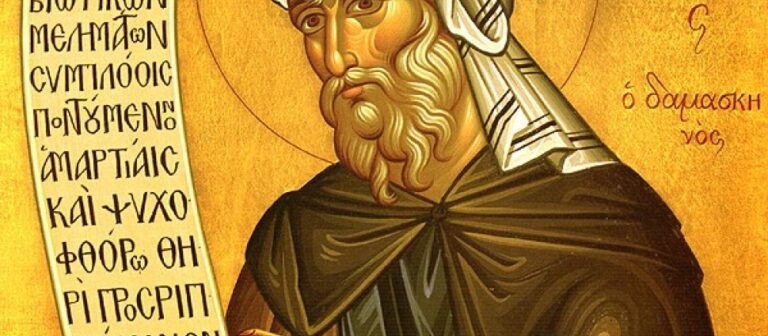
WCF 6: Of the Fall of Man, of Sin, and of the Punishment Thereof
One of the first questions friends ask parents of newborns is, “Does she look like mom or dad?” Often it’s hard to say; kids inherit traits from both their parents.
Children share more than their parents’ looks. They also acquire their nature. “When Adam had lived 130 years, he fathered a son in his own likeness, after his image, and named him Seth” (Gen. 5:3). That sentence is both happy and sad. Seth was a gift from God, a new start. But Seth was born to sinners; the likeness he now shared with his father and mother was marred. And so the human story has continued.
To know ourselves we need to understand what happened to our first parents when they tried to make their own way in the world contrary to God’s truth.
The First Sin (6.1–3)
The event of the first sin is narrated in Genesis three. Satan, taking the form of a serpent, seduced and deceived Eve (1 Tim. 2:14). Eve disobeyed God and ate fruit from a forbidden tree, as did Adam, following his wife.
The Bible doesn’t explain how it was possible for Adam and Eve to sin. But we know they had a truly free will; they were not forced into disobedience. The serpent was “more crafty than any other beast of the field” (Gen. 3:1). But the father of lies (John 8:44) still has creaturely limitations. Today too if we resist Satan he will flee from us (James 4:7; Matt. 4:11). Even fallen humans can rule over sin (Gen. 4:7). Moreover Adam and Eve had one rule to respect. They clearly understood God’s word and could have lived by it (Matt. 4:4). Finally, Eve had a partner. She should have asked Adam, the master of the garden, to help her withstand the devil. She didn’t have to stand alone (see Eccl. 4:12). Despite every advantage to obey God and retain their innocence, our first parents disobeyed.
Even this catastrophic first sin, “God was pleased, according to his wise and holy counsel, to permit, having purposed to order it to his own glory.” Just how sin is part of God’s plan doesn’t have to make sense to us.
Our first parent’s sin had immediate tragic consequences. From a plain read of Scripture clearly something happened to the relationship between God and his first people after their sin. Hiding from God was something entirely new and totally unexplainable apart from disobedience. God had warned that death would come to earth if they ever transgressed; and it had. Humans had become “dead in sin.” Evil now defined them (see Gen. 6:5). So it was no longer natural for man to commune with God. As further evidence of their fallenness their eyes were truly opened (Gen. 3:7); they now knew shame, fear, and conflict.
The effects of their decision to sin extended beyond themselves and hampered their ability to exercise godly dominion over the world. God immediately explained the tragic cosmic implications of their choice. Paradise would become overrun with thorns. Procreation would now be painful. Work would be toilsome. Relationships would be combative. Life would end in death. Humanity had fundamentally changed. Adam and Eve’s new corrupted nature would also corrupt the entire race. They were “the root of all mankind.” God “made from one man every nation of mankind to live on all the face of the earth” (Acts 17:26). Every seed that fell from this tree would produce fruit according to its fallen kind. So long as the process of “ordinary generation” continued every human would be conceived and born in sin (Ps. 51:5).
This is not just a sad history lesson. Only this literal fall of humanity adequately explains ongoing sin and the punishment it incurs. And only this literal fall mirrors sin’s true cure in the obedience and sacrifice of Christ (see Rom. 5:12–21).
The Legacy of the First Sin (6.4–6)
Every person born from Adam and Eve shares their image and likeness. Their sin corrupts our character. No one comes into this world good (Matt. 19:17) or even neutral. We begin life “under sin” (Rom. 3:9). We are unable to do spiritual good; we don’t even want to. We are inclined to evil; we favor the wrong way. Our natures are spiritually dead—“we were dead in our trespasses” (Eph. 2:5). Even the common decency that humans sometimes demonstrate cannot be considered righteous if it doesn’t flow from true faith and aim at God’s glory.[i] The last verse in a string of Old Testament quotations in Romans three explains it all: “There is no fear of God before their eyes” (18). Fear of God is basic to uprightness. As post-fall animals no longer fear humans, so post-fall humans no longer fear God. We now share Eve’s inclination to be like God, wiser even. Eve believed that she could be happy disobeying God. She wanted God’s blessing without submission to his will. We start life guided by that same maxim. From our inherent sinfulness proceeds every actual sin. This is why David could say that he was brought forth in iniquity. Like everyone else David was iniquitous even before he had committed iniquity. He was simply born that way. Having corrupted natures we can’t reform ourselves. We can’t even choose Christ as our Savior unless the Father makes “us alive together with Christ” (Eph. 2:5).
By God’s grace sinfulness can be pardoned and weakened but not destroyed in this life. Even born-again people sin because they are still sinners till the day they are fully redeemed in glory. Even as a forgiven Christian Paul not only sinned, he was “of the flesh, sold under sin” (14). He didn’t simply commit sin; sin dwelt within him (20). He needed deliverance from the body of death (24). And Christ graciously began that deliverance. Paul was justified, declared righteous before God because of Christ’s righteousness imputed to him by faith. But Paul didn’t at that instant become righteous.
Why does all this matter? Because all sin, original and actual, brings guilt and the effects of the curse including death and misery. By virtue of living—even apart from committing “terrible sins”—you and I are under a curse. Paul quotes a chilling text from Deuteronomy: “Cursed be everyone who does not abide by all things written in the Book of the Law to do them” (27:26). The law has lighter and heavier commandments (Matt. 23:23). But as a whole it is God’s comprehensive will for all people. God doesn’t grade on a curve. He doesn’t grant exceptions. His standard is perfection (Matt. 5:48). And the consequence of failure is eternal separation from his kindness.
Sin is central to our story. And we all know it. R.C. Sproul put it well: “Some people think that the Genesis account of the fall is a myth, but no one thinks that sorrow, stress, and toil are myths. The curse under which we live is real, and it is inseparably related to sin.”[ii] Both Scripture and experience tells us that we need a Savior. Don’t pretend to be innocent, deceive yourself, and make God a liar. Confess your sin and your native sinfulness and Christ, who is faithful, will cleanse you (1 John 1:8–10).
William Boekestein pastors Immanuel Fellowship Church in Kalamazoo, Michigan. He has authored numerous books including, with Joel Beeke, Contending for the Faith: The Story of The Westminster Assembly.
[i] Heidelberg Catechism, Q/A 91.
[ii] R.C. Sproul, Truths We Confess: A Systematic Exposition of the Westminster Confession of Faith (Sandford, FL: Ligonier, 2019), 170.
























